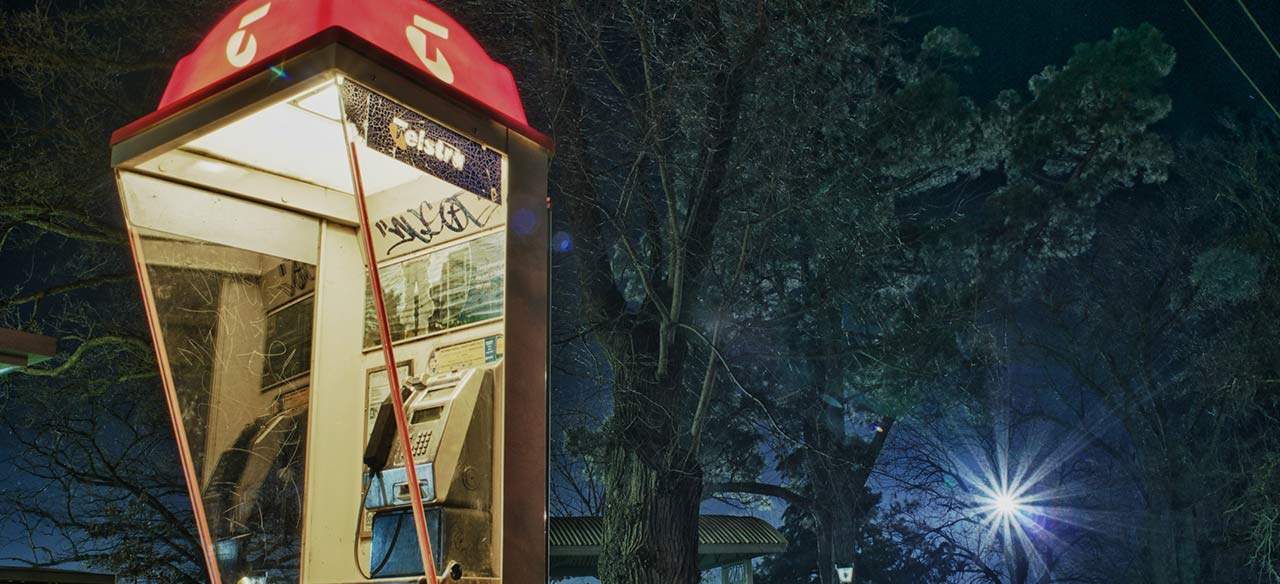Is Telstra’s New Phone Booth Wi-Fi All It’s Cracked Up to Be?
Or is it a distraction from the real goal?
Telstra announced some pretty exciting news yesterday. As part of their $100 million, five-year Wi-Fi Nation plan, the telecommunication giants are transforming 1000 of Australia's shitty old phone boxes from disgusting petri dishes of technological obsoleteness into actually useful free Wi-Fi hotspots. From November 1, you can log onto this glorious free internet while cruising through any of our nation's major cities. If you're a tourist or a cheapskate who's maxed out your iPhone data, it's time to rejoice. For everyone else, you might like to take a better look at the issue first.
First off, this isn't a permanent thing. Telstra's gift of free lolcats and Facebooking will only last until the end of the year; after that, those who aren't Telstra fixed-line customers will have to buy passes to access the service. Though a similar phone box system has been implemented in New York and London, Australia's will be the only one that isn't free for all. It's hard to imagine who's going to be paying for Wi-Fi while sitting on the street, when it's cheaper to just go get a coffee and awkwardly ask the barista for the cafe's Wi-Fi password.
As long-time supporters of public wi-fi, this is hard for us to write. Seeking to install two million hotspots around the country, the full Wi-Fi Nation plan is exciting; it's everything we've wanted! But with restrictions and mandatory costs in place, it looks a lot more like a giant PR push than something actually useful in the real world. Where broader municipal Wi-Fi networks try to build the economy by giving everyone equal access online, Telstra hotspots attempt to convert you to Telstra. Anything else is just a bonus, really.
Of course, city-wide free Wi-Fi is the dream. State governments in both New South Wales and Victoria have been flirting with the idea for years now, but the only city to get it together has been Perth. Launching last year, Perth's blanket free Wi-Fi covers the entire CBD and cost $300,000 to implement. Not too shabby. After dumping plans in 2008, it was reported that Melbourne was to trial a similar program this year, but the news has been disappointingly sparse. Sydney's hopes were also dashed in 2008, though the City of Sydney are currently investigating the introduction of Wi-Fi into the city's parks and public squares.
Alternatively, Brisbane are doing pretty well. Brisbane City Council currently offer free internet access in many parks, malls and areas of the CBD. It's safe to assume not many people will be paying Telstra to jump on a hotspot in Brisbane if they can surf for free while they shop.
Importantly, all of these free networks are government initiatives. Internet access is, after all, a human right. So, will our governments now be less inclined to fight for a larger system if it seems as though payphones have the problem sorted? They definitely have one less commercial telco to partner with. When Sydney were considering free Wi-Fi in 2008, Telstra were the first to cast doubt anyway.
"There's no such thing as a free lunch anymore so it will be interesting to see how it is proposed to be paid for," a decidedly catty spokesperson told SMH.
Now, the City of New York hope to make $17.5 million in digital advertising from their phonebooth project. Times have changed. For all its other problems, even Tel Aviv has a better system than us. So, let's just live it up while we can. This two months of free internet will be great. After that, make sure to be nice to your baristas.
Photo credit: Indigo Skies Photography via photopin cc.






